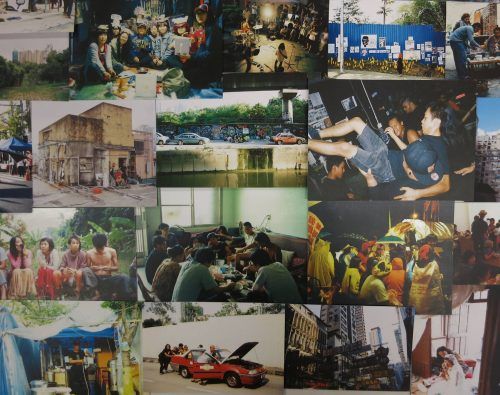IRORI is a group of Japanese artists invited to Wrocław thanks to the cooperation between the Culture Zone Wrocław with EU Japan Fest as part of the AIR Wro. The project implemented by the collective was selected as within an open call addressed to Japanese creators, designers, architects and managers of culture. The group's activities are focused around the traditional Japanese "irori" hearth, which during the series of events organized jointly with the Krupa Gallery, Food Think Tank and the Wykwit is an opportunity to show the contemporary face of Japanese culture to the inhabitants of Wrocław. The project present old traditions with a modern twist, using technology, cooking and collective work practices.
Anothai Oupkum is a curator and organiser. She received her M.A. in Art Theory from Silpakorn University (Thailand, 2014) and B.A. from the Faculty of Fine Arts, Chiang Mai University (Thailand, 2008). Since 2013 she has organised art events, workshops and several activities in the field of contemporary arts in Bangkok and Japan.
Kenichiro Egami studied Sociology and Media Studies in Japan and Fine Arts and Anthropology at Goldsmith College and the University of London. While staying in the UK he began to participate in political and social movements in the UK and Japan. At the same time he started doing photographic documentation of the political actions and research on autonomous spaces in the world. His main interests include anthropological study of political movements, alternative cultures in Asia and vernacular urban space.
Mayumi Hirano is an independent curator, researcher and translator based in Osaka, Japan, and Manila, Philippines. She received her master’s degree from the Center for Curatorial Studies, Bard College, New York. She is also a co-founder of 98B COLLABoratory, a multi-disciplinary space in Manila for experimental art projects.
Toshiaki Ishikura is a cultural anthropologist who specialises in art anthropology and comparative mythology. He conducted comparative studies of the myths of the mountain goddess around Japan, India, Nepal, and other Pacific Basin countries. He also investigates the bio-cultural context of non-human species and artistic images, such as indigenous artefacts, traditional products, religious relics, and contemporary artworks.
Shinya Akutagawa graduated from Tokyo University of the Arts. He is a project and research based artist whose work often involves interactive and participatory art using drawing animation and music, physical computing and DIY devices as an installation or participatory art. Since 2012 his interest has focused on Southeast Asia, where he has had several urban art projects.
Yu Ohtani is a candidate of PhD in Tokyo University. He is an urban researcher and author, initiator of the cultural project Japanese House in empty houses in Leipzig, which since February 2012 has been run as a registered foundation. Until December 2010 he was involved in the creation of a master plan for regional revitalisation and the organisation of the residents' participatory art festival under the IBA Fürst-Pückler-Land project.
Kazuyuki Miyamoto is an artist and performer who holds a master’s degree from the Department of Imaging Art and Science of Musashino Art University, Japan. Since 2008 he has created imaging art, designs and performances in accordance with the theory of soundscape. His artwork won the Silver Award at the 9th International Design Award and the Silver Award with “A” Design Award in 2016.

